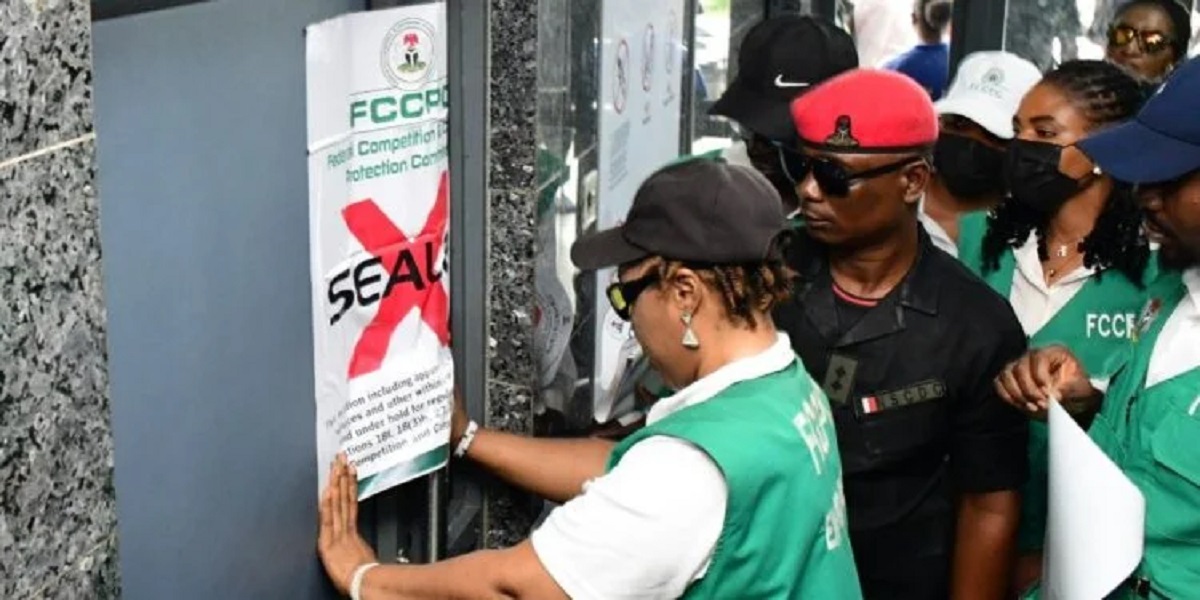News
Luno Partners Genesis to Help Customers Earn Interest on their Crypto holdings

Genesis, a leader in digital currency prime brokerage services, today announced a partnership with Luno, the global cryptocurrency platform, to provide customers with simple, accessible ways to earn interest on their crypto holdings.
The partnership creates savings accounts providing institutional-level interest rates to clients in traditional and emerging markets.

These innovative savings accounts will provide traditionally underbanked customers in emerging markets access to banking services via the market infrastructure built for the global crypto currency community, while providing another potential source for generating yield on crypto holdings for customers in all markets.
Genesis has firmly established itself as the first and largest institutional digital asset lender, with zero defaults across the history of its lending business.
Genesis CEO Michael Moro noted, “We share Luno’s passion for making it safe and easy – across all segments of the market – to learn about, buy and store cryptocurrencies. By combining Genesis’s infrastructure with Luno’s footprint in more than 40 countries, we’re creating a fairer, more inclusive financial system by providing access to interest-bearing products to historically underbanked and unbanked populations.”
“We’re operating in a historical context where global fiat monetary policy has produced record low interest rates in traditional money market and savings accounts.
“The interest customers can earn on their crypto is compelling. It presents an opportunity to attract those unfamiliar with crypto, and to offer them a very clear value proposition.”
Marcus Swanepoel, Luno CEO, said, “Our partnership with Genesis allows us to offer more diversified financial products to our customers. We’re dedicated to providing innovative financial solutions to consumers all over the world – whether they are in Africa, Asia or Europe – regardless of their local currency. We specialise in making crypto safe and easy to use.”
“Digital currency investors have become increasingly sophisticated, seeking not just liquidity from exchanges, but also a competitive yield on their crypto assets,” said Leon Marshall, Head of Institutional Sales at Genesis. “Our global focus has helped us become the largest trading and lending firm in the digital asset space, and we are both privileged and excited to be working with a global leader like Luno.”
Luno is a leading cryptocurrency company which currently has over 4 million customers with a team of over 350 and headquarters in London with regional hubs in Singapore and Cape Town.
News
DBN Awards N13m in Grants to Tech Startups

Development Bank of Nigeria (DBN) has awarded a total of N13 million in grants to three standout tech startups at the 2025 Techpreneur Summit held in Lagos, reinforcing its commitment to innovation and inclusive growth among Nigeria’s micro, small, and medium enterprises (MSMEs).

The winners include: BuyScrap, a digital marketplace for recyclable materials – N6 million; Qiqi Farms, which connects local farmers to hospitality and export markets – N4 million; Eco-Cyclers, a youth-led recycling initiative based in Enugu – N3 million
Alongside the grant awards, DBN also launched a new digital data asset, a first-of-its-kind platform aimed at enabling data-driven decisions within the MSME ecosystem.
The platform offers deep insights into business trends, sector-specific challenges, and growth opportunities—supporting smarter policymaking and targeted investments.
In his keynote address in Lagos, Tony Okpanachi, managing director/ CEO, DBN, described the event’s theme, “CTRL + SHIFT: Tech Empowered Movement for Naija,” as a strategic call to reimagine enterprise development in Nigeria.
“This isn’t just a keyboard shortcut,” he said. “It’s a mindset reset—powered by technology—to build a more inclusive, innovative, and resilient business landscape. From financing to innovation, DBN remains committed to enabling MSMEs to thrive.”
Okpanachi emphasized that the Summit aligns with DBN’s AMPLIFI Strategy, which integrates digital transformation, sustainability, and scalability into its core programs.
He highlighted initiatives such as the Digital Shift Workshops and the Eco-Innovation Challenge as key steps toward embedding innovation in Nigeria’s MSME sector.
Encouraging young innovators, he added: “The future belongs to those bold enough to imagine and build it. DBN is proud to support the ideas that will shape tomorrow.”
A major highlight was the unveiling of the DBN Data Asset—a digital platform designed to provide real-time, evidence-based insights into Nigeria’s MSME landscape.
The platform combines DBN’s proprietary data with external sources like the National Bureau of Statistics (NBS) to offer a comprehensive view of MSME performance by region and sector.
Jeremy Dan Okayi, DBN’s Head of Strategy, Policy & Innovation, described the platform as: “A reservoir of insight, potential, and direction—built on two years of collaboration and shared vision. This tool will support informed decision-making across the public and private sectors.”
News
FCCPC Shuts France, Belgium, and Italy Visa Centres in Abuja Over Alleged Consumer Rights Violations

In a bold enforcement action, the Federal Competition and Consumer Protection Commission (FCCPC), supported by the Nigeria Police Force and the Nigeria Security and Civil Defence Corps (NSCDC), has sealed off the visa application centres of France, Belgium, and Italy in Abuja over alleged consumer protection breaches and obstruction of regulatory investigations.

The affected centres—located at Mukhtar El-Yakub House in the Central Business District and operated by TLS Contact, a Teleperformance Company—were shut down following reports that they refused to accept formal correspondence from the FCCPC regarding a consumer complaint. The Commission cited further infractions, including obstruction of investigation and alleged assault of its officers during lawful duties.
Speaking to journalists at the scene, Mrs. Boladale Adeyinka, Director of Surveillance and Investigations at the FCCPC, explained: “This is an enforcement operation against TLS. On March 25, 2025, we served them a letter to address a consumer complaint, which they refused to accept. Instead, TLS officers assaulted our team, and in a subsequent visit on June 17, they also allegedly assaulted uniformed police officers.”
Citing Section 33 of the Federal Competition and Consumer Protection Act (FCCPA), Mrs. Adeyinka emphasized that failure to comply with Commission directives constitutes a criminal offense, punishable by imprisonment, fines of up to ₦20 million, or both.
TLS has been ordered to appear before the Commission on June 20, 2025, to provide testimony, submit evidence, and make formal depositions. The company may be held liable for any financial losses suffered by applicants due to the disruption of visa services.
Despite multiple requests for comment, management at TLS Contact declined to respond as of press time.
News
How and Why N210 Trillion is Missing in NNPCL – CFO

Adedapo Segun, chief financial officer (CFO), Nigerian National Petroleum Company Limited (NNPC), has explained why there is a missing sum of N210 trillion in the company’s audited financial statement spanning from 2017 to 2023.

According to Segun, the missing funds are cash calls requested by joint venture (JV) partners and settlement to the JVs.
He spokeat a session of the Senate Committee on Public Accounts chaired by Aliyu Wadada.
Segun was responding to an alarm raised by the committee over missing N210 trillion in NNPCL’s audited financial statement.
Recall that Wadada issued a one-week ultimatum to NNPCL to account for the missing N210 trillion.
Reacting, Segun said, “The N103 trillion and N107 trillion are made up of joint venture cash calls that have been requested by the JV operators and JV cash call payments made by NNPCL, which are yet to be reconciled because governance procedures were not done at that time.
“That is why you see the description reflecting those two items would be washed out because they are two sides of the same transaction, which is the cash calls by JV partners and the settlement by NNPCL.”
However, Habu Sadeik, a financial analyst, in a post on X on Thursday, said Segun’s response was unsatisfactory.
Saidik faulted NNPCL’s response about the fund discrepancies, noting that something is not right with the audited financial statement.
“Forget about the senators’ lack of knowledge.
“The CFO’s response is not satisfactory. Are you saying that cash calls worth hundreds of trillions are just appearing on your FS only in 2024 without 31 disclosure?
“If it’s a cash call, why hasn’t the disclosure said so?
“Which cash call is over 100 trillion?
“Something is definitely not right, and I hope they retrospectively correct that FS.
“Someone somewhere did a chef’s work,” he wrote on X.

 News3 days ago
News3 days agoLasaco Assurance to Invest in Technologies, Systems to Deliver Value to Clients

 E-Financial3 days ago
E-Financial3 days agoNIBSS National Payment Stack to Transform Nigerian Instant Payments

 Telecom21 hours ago
Telecom21 hours agoMafab Gets 0724 Number Series, Launches Mcom 5G Brand

 General News3 days ago
General News3 days agoMoniepoint Demonstrates Commitment to Nurturing Africa’s Future Leaders

 E-Financial3 days ago
E-Financial3 days agoCBN Reaffirms Banking Sector Resilience as Forbearance Ends

 News2 days ago
News2 days agoHow and Why N210 Trillion is Missing in NNPCL – CFO

 Telecom21 hours ago
Telecom21 hours agoOver 1m Nigerians Reached through MTN Staff’s Digital and Community Outreach

 News2 days ago
News2 days agoPalmPay, Glo Launch “Recharge and Win Bonanza 2” with Exciting Prizes



























